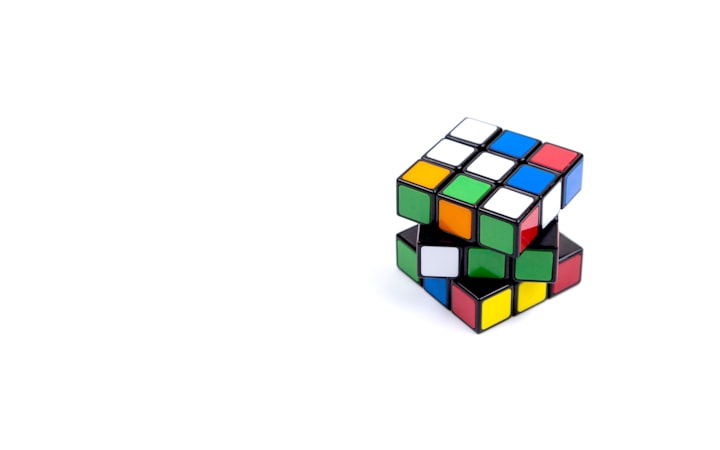Mathematical Thinking: Unlocking Problem-Solving Skills
The Power of Numerical Reasoning

In a world increasingly driven by data and algorithms, the ability to think mathematically is no longer confined to academics and professionals in STEM fields. It's now a critical component of everyday life, shaping how we make decisions, analyze information, and solve problems. Mathematical thinking extends beyond the ability to perform calculations or construct proofs—it's a mindset that can empower everyone, regardless of their career or background.
In this blog post, we'll explore the essence of mathematical thinking and how it intricately ties to problem-solving and critical skills. We'll examine its fascinating intersection with creativity and innovation and delve into its practical applications across various domains. Prepare to unlock the potential of mathematical thinking and embrace it in your daily experiences.
What is Mathematical Thinking?
Mathematical thinking is the process of reasoning using mathematical concepts to solve problems, analyze patterns, and make logical deductions. It possesses specific characteristics such as clarity, precision, and abstraction, which enable individuals to approach complex situations systematically. Unlike routine mathematical exercises, mathematical thinking involves the application of various mathematical concepts rather than formula memorization. This approach is foundational in courses like 'Introduction to Mathematical Thinking', which aim to develop critical thinking skills through mathematics.
At its core, mathematical thinking promotes a disciplined yet flexible approach to problems. It allows for a deeper understanding of the issues at hand, breaking them down into components that are more manageable and less intimidating. The pursuit of this kind of thinking, as exemplified in courses like 'Introduction to Mathematical Thinking', is what can turn seemingly inscrutable puzzles into accessible and solvable questions
Problem-Solving Skills
Mathematical thinking is intrinsically linked to problem-solving. By engaging with mathematical concepts on a deeper level, individuals develop a toolkit for tackling challenges that span all areas of life—from figuring out the most cost-effective way to plan a project, to resolving scheduling conflicts, to making sound financial decisions.
For example, consider the task of planning a family vacation within a budget. Mathematical thinking enables you to evaluate various options systematically, accounting for constraints such as travel costs, accommodation expenses, and activities, ultimately guiding you towards the most value-conscious choice.
Or, in a work setting, imagine you are tasked with increasing department productivity without exceeding current resources. Mathematical thinking fuels the analysis of work processes by using principles like efficiency, optimization, and scaling, propelling you toward innovative solutions.

Critical Thinking
Critical thinking is the ability to engage in reflective and independent thinking, and it's a fundamental aspect of mathematical thought. Not only does it require one to assess propositions logically, but it also involves questioning assumptions and weighing evidence thoughtfully.
The journey to hone critical thinking skills through mathematics involves asking probing questions about numbers and relationships, such as "Why is this true?" or "How do I know this?" This line of inquiry pushes individuals beyond rote learning, planting them firmly in the realm of deep comprehension and reasoned judgment.
Creativity and Innovation
Contrary to popular belief, mathematical thinking and creativity are far from mutually exclusive. In fact, mathematics often serves as a launchpad for innovation, providing the tools to turn imaginative concepts into tangible realities.
Case studies from industries like technology and engineering frequently highlight this fusion of mathematical precision and creative problem-solving. For example, the development of the algorithm behind Google's search engine required innovative thinking underscored by a solid foundation in mathematics. Likewise, mathematical modeling has played a key role in architectural triumphs that push the boundaries of design while ensuring structural integrity.
Innovation is not just about having a groundbreaking idea; it’s also about the rigorous process of refining, testing, and implementing the concept. Mathematical thinking undergirds this entire process, ensuring that ideas not only shine with potential but also function effectively.
Practical Applications
The real beauty of mathematical thinking lies in its versatility and application across countless domains. In finance, it's instrumental for risk assessment, investment analysis, and strategic planning. Technology companies rely on it for algorithm development, data analysis, and system optimization, whereas scientists use it to conduct research, create models, and interpret empirical data.
Moreover, the applications of mathematical thinking even stretch into the arts, where it influences musical composition and visual design. Understanding and applying mathematical principles provide a backbone of structure and pattern, which can enhance the creation and perception of art.
The benefits of wielding this powerful cognitive tool are vast. Mathematical thinking can lead to more informed decision-making, higher efficiency in task execution, and a more robust understanding of the world.
Conclusion
Emphasizing the value of mathematical thinking is not about turning everyone into mathematicians. Rather, it's about recognizing that the principles grounding math—logic, analysis, precision—can significantly amplify our ability to navigate a complex world.
It's time to embrace the mindset that to tackle today's challenges, both big and small, we can all tap into mathematical thinking. Encourage yourself to look at problems through this analytical lens, appreciate patterns and structures, and always seek clarity in your reasoning.
So, why not let mathematical thinking unfold in your daily routine? Whether you're planning a budget, analyzing a report, or simply engaging with the world around you, apply this thought process to see how much clearer and more efficient it can be.
Start today! Identify one problem area in your life and approach it with mathematical thinking. Best wishes to you all!
About the Creator
Rayan Smith
Hello Guys! My name is Rayan Smith a professional blogger and academic advisor. I love to share my knowledge with students for improving their academic performance.






Comments
There are no comments for this story
Be the first to respond and start the conversation.